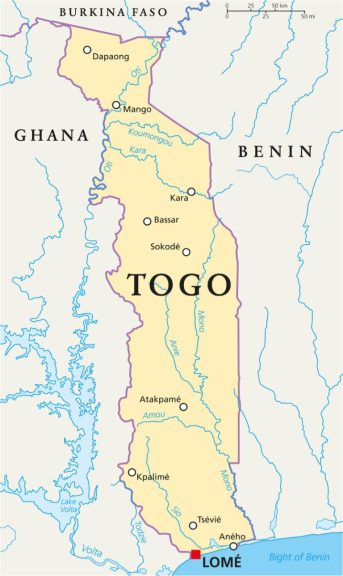The Russian President, Vladimir Putin, has met with Togolese Prime Minister Faure Gnassingbe in Moscow to discuss bilateral relations. The two announced the opening of respective embassies in Moscow and Lomé.
Gnassingbe’s trip occurs amid a gradual but steady development between Russia and numerous African countries. For Togo, this momentum began in June 2018 with the visit of Mikhail Bogdanov, the Russian president’s special representative for Africa.
Since that initial step, bilateral exchanges have intensified significantly, with a central pillar of cooperation being the strengthening of human capital. Russia has regularly awarded state scholarships to Togolese students, with a noticeable increase: 86 scholarships were granted for the 2024-2025 academic year, a sharp rise from just ten two years prior.
Collaboration in the security sphere has also been substantially strengthened. In October 2025, a framework agreement for military cooperation was formally ratified between Moscow and Lomé. This agreement provides for joint exercises, comprehensive training programs, intelligence sharing, and emergency medical assistance.
Togo is strategically located on the Gulf of Guinea in West Africa and serves as a key commercial and trade hub in the region, benefiting from its geographical position and Lomé’s deep-water port, which acts as a vital gateway for trade in West Africa.

The economy of Togo is diverse, with agriculture playing a central role, contributing approximately 42% of GDP and providing employment to a significant portion of the population. The country is known for its production of key agricultural commodities such as cocoa, coffee, corn, rice, cassava, yams, cotton, beans, and millet, all cultivated across its fertile lands. Mining is another critical sector, with Togo holding the world’s fourth-largest phosphate reserves. The state-owned Société Nouvelle des Phosphates du Togo (SNPT) leads phosphate production. In addition, Togo extracts gold, bauxite, marble, limestone, and other minerals. The industrial sector is complemented by cement production, textiles, and breweries. The services sector, especially trade, transportation, and telecommunications, plays a crucial role in bolstering Togo’s status as an economic hub in the region.
Togo benefits from its membership in ECOWAS (Economic Community of West African States), which promotes economic integration and free trade with 14 other West African nations. ECOWAS facilitates the free movement of goods, services, and capital among its members, backed by a common external tariff. Togo is also part of UEMOA (West African Economic and Monetary Union), which includes eight countries sharing the CFA franc as their currency and encouraging regional economic cooperation. Additionally, Togo is a signatory to the African Continental Free Trade Area (AfCFTA), aimed at creating a single market for goods and services across Africa to enhance intra-continental trade. On the international stage, Togo is a member of the World Trade Organization (WTO), ensuring adherence to global trade regulations and benefiting from mechanisms like dispute resolution and trade liberalization.
With a population of about 9.6 million, Togo has a GDP (PPP) of US$25 billion and a GDP per capita (PPP) of US$2,770. GDP is projected to grow by 5.3% in 2025.
Russia’s bilateral trade with Togo is small; however, it is expected to grow. Bilateral trade is currently running at about US$10 million, with Russia exporting mineral fertilizers and Togo exporting fruits and nuts. Russia also sent its first shipment of wheat to Togo earlier this year.
Further Reading

 Русский
Русский














